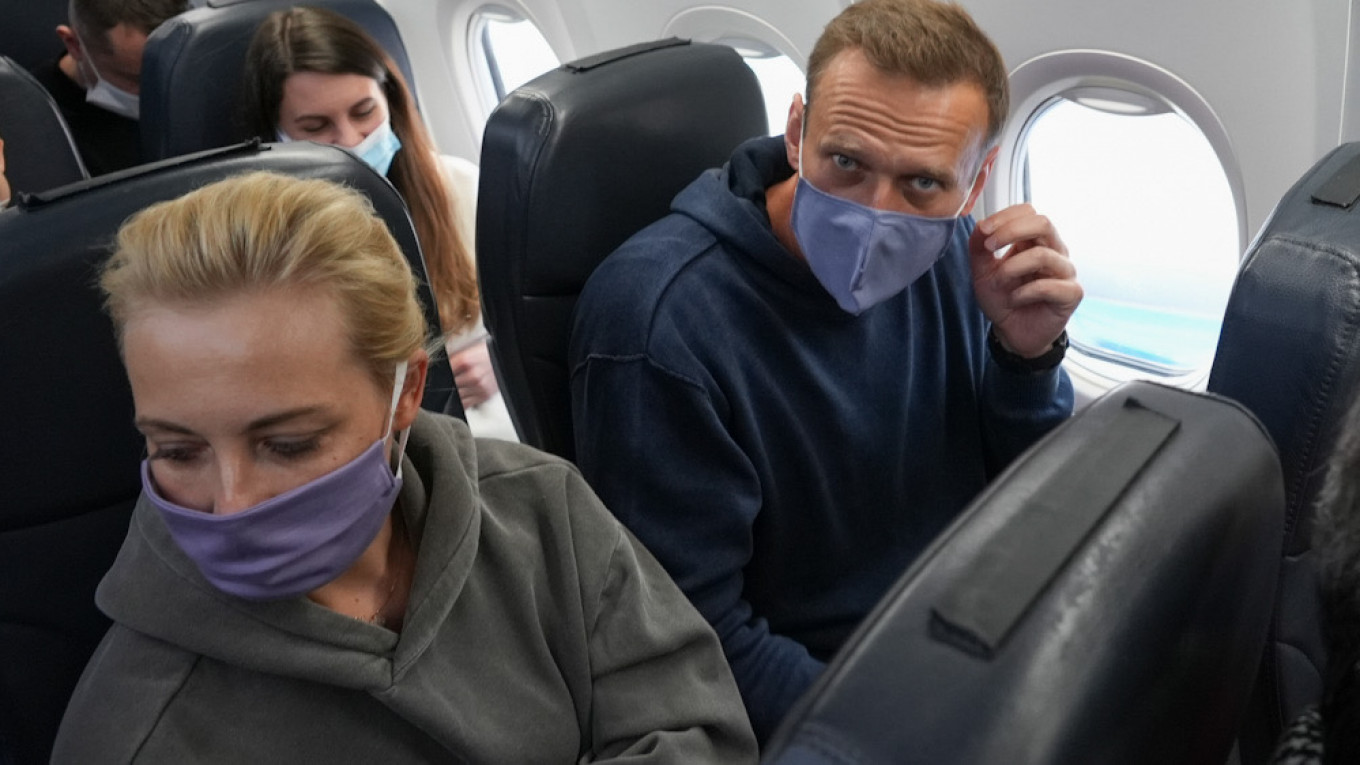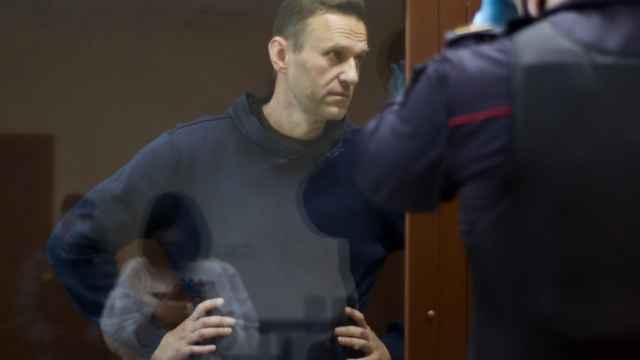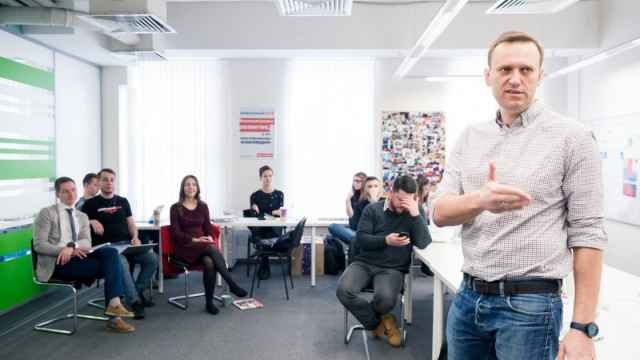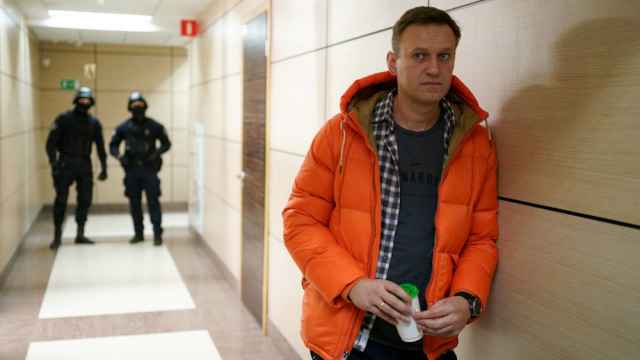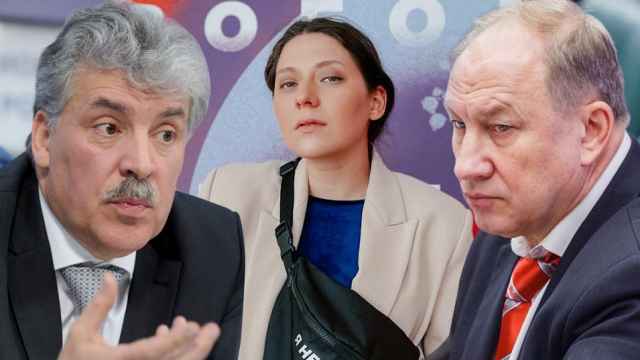The decision to divert the Pobeda Airlines flight with Kremlin critic Alexei Navalny onboard from Vnukovo to Sheremetyevo airport created “a dangerous and reckless situation in the Moscow airspace,” a pilot who was forced to delay their descent on Sunday evening told The Moscow Times.
The pilot — who asked to remain anonymous for fear of losing their job — estimated that “around 8” planes were forced to adjust their routes due to the Navalny Pobeda flight diversion and said their plane began to run low on petrol. “We were burning petrol without clear instructions. We were slowly running out, it wasn’t a very pleasant situation,” the pilot said.
The flight from Berlin to Moscow with Navalny onboard was scheduled to arrive at Vnukovo airport at around 7:20pm local time, and hundreds of Navalny supporters and journalists had gathered to welcome the Kremlin critic who had spent five months in Germany following a poisoning attack. Pobeda is the low-cost subsidiary of Russia’s flagship carrier Aeroflot.
However, as the plane approached Moscow, it started to circle, and eventually the crew told passengers that it was being diverted to Sheremetyevo airport due to “technical problems.” It landed an hour later.
Pobeda’s press service later said that the brush from a snowblower was stuck in snow at the intersection of two runways at Vnukovo, which forced the airport to temporarily close its landing strip. The airport resumed accepting inbound flights shortly after Navalny’s plane landed.
The pilot said they did not believe Vnukovo was experiencing technical problems.
In total, four flights were diverted from Vnukovo to Sheremetyevo.
Maksim Pirkov, a pilot with Russia’s Nordwind Airlines who was not flying at the time of the incident, also slammed the decision to divert the plane.
“A few hundred people became hostage to this situation,” Pirkov wrote on his Instagram page.
“If it wasn’t for the coronavirus and there had been more planes, one of them could have really ended up without fuel, or worse, crashing into pieces.”
In conversation with The Moscow Times, Pirkov also questioned Vnukovo’s assertion that the flight was diverted due to technical issues.
“I don’t understand why we had to make such a fuss because of one person,” Pirkov said adding that he received complaints from “multiple colleagues” who were flying into Moscow on Sunday evening about the incident.
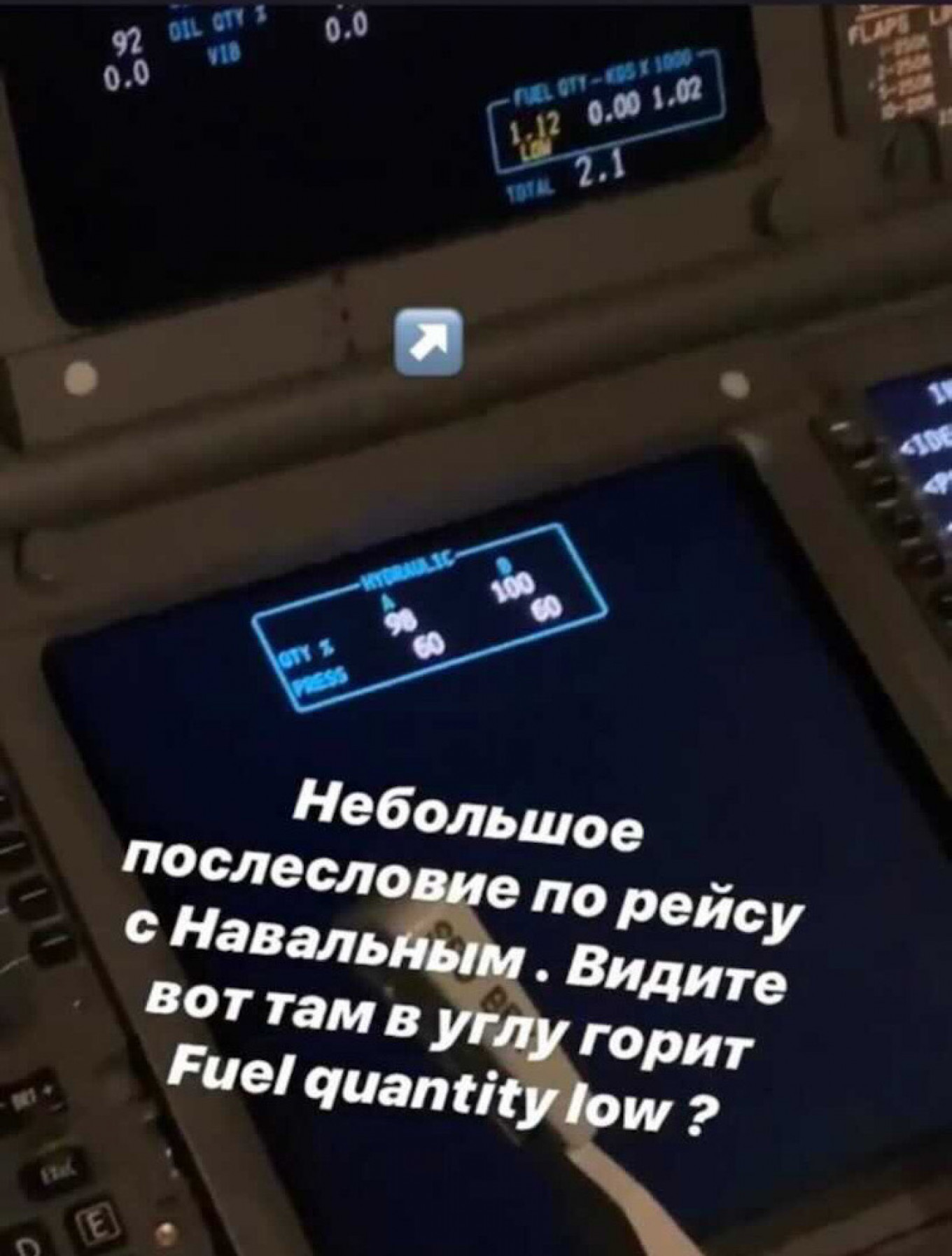
On his Instagram page, Pirkov also posted a picture reportedly sent to him by one of the pilots who flew on evening which appears to be a picture of the control panel of the cockpit showing a low fuel gauge.
Independent flight expert Vadim Lukashevich said that while diverting flights from one airport in Moscow to another was not “very tricky,” as Moscow shares a common air traffic control service, the sudden decision to close down Vnukovo Airport “changed the whole schedule of airspace movements above Moscow.”
“The excuse Vnukovo used is laughable. It seems to be politics at play.”
Lukashevich believes that passengers on the Navalny plane were never in danger as it was likely well fueled.
Baza, a Telegram channel with close links to Russia’s security services, said Sunday that senior Aeroflot and Pobeda officials, as well as the crew of the Navalny flight, were told in advance that the plane would divert to Sheremetyevo prior to landing.
However the situation for other planes was different, said Lukashevich.
“Based on flight tracking data, you had at least four planes who were forced to circle around waiting to land who were not prepared for this. I have to stress this only happens during emergencies or when the president flies.”
Shortly after landing, Navalny was detained at Sheremetyevo Airport by the Russian authorities. The prison service said he was detained for multiple violations of parole and terms of a suspended prison sentence.
Daniil Galyamov contributed reporting.
A Message from The Moscow Times:
Dear readers,
We are facing unprecedented challenges. Russia's Prosecutor General's Office has designated The Moscow Times as an "undesirable" organization, criminalizing our work and putting our staff at risk of prosecution. This follows our earlier unjust labeling as a "foreign agent."
These actions are direct attempts to silence independent journalism in Russia. The authorities claim our work "discredits the decisions of the Russian leadership." We see things differently: we strive to provide accurate, unbiased reporting on Russia.
We, the journalists of The Moscow Times, refuse to be silenced. But to continue our work, we need your help.
Your support, no matter how small, makes a world of difference. If you can, please support us monthly starting from just $2. It's quick to set up, and every contribution makes a significant impact.
By supporting The Moscow Times, you're defending open, independent journalism in the face of repression. Thank you for standing with us.
Remind me later.



